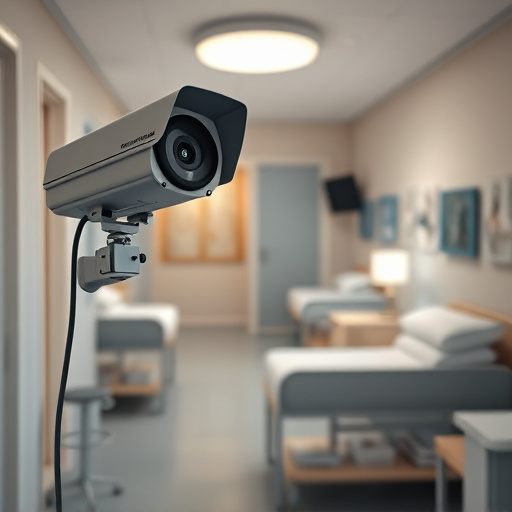In the dynamic elder care sector, cameras for nursing homes are crucial tools enhancing safety and well-being through strategic monitoring. These systems enable remote activity tracking, swift emergency responses, and detailed event recording, preventing neglect and abuse while promoting resident independence. They offer real-time visual data, peace of mind for families, incident documentation support, and tailored configurations like fixed, wireless, and motion-sensitive models. However, implementation must balance care quality monitoring with ethical considerations, respecting privacy through transparent practices, informed consent, and adherence to data protection laws.
In today’s digital era, care home monitoring systems, particularly cameras for nursing homes, are transforming the way we ensure resident safety and well-being. With an aging population and increased scrutiny, understanding the need for monitoring is more crucial than ever. This article delves into the benefits of implementing camera systems, exploring their types, features, and ethical considerations to help care facilities make informed decisions. Discover how these innovations can enhance care quality while addressing privacy concerns.
Understanding the Need for Monitoring in Care Homes
In the dynamic landscape of elder care, ensuring the safety and well-being of residents is paramount. Care home monitoring systems, often involving the strategic placement of cameras for nursing homes, have emerged as a vital tool in achieving this goal. These systems allow staff to remotely monitor activities, detect potential issues, and respond swiftly to emergencies, enhancing both the quality of care and peace of mind for families.
The need for such monitoring is multifaceted. It helps prevent neglect or abuse by providing an objective record of events, ensures residents’ independence by offering discreet surveillance, and facilitates better resource allocation by allowing staff to focus on areas that require immediate attention. With cameras for nursing homes integrated into care home monitoring systems, the overall environment becomes safer, more efficient, and more responsive to the unique needs of each resident.
Benefits of Implementing Cameras for Nursing Homes
Implementing cameras in nursing homes offers a multitude of benefits that significantly enhance care quality and staff efficiency. These devices serve as valuable tools for monitoring, ensuring resident safety, and promoting overall well-being. With real-time visual data, caregivers can promptly respond to any emergencies or unusual behaviors, allowing for faster intervention and better crisis management.
Moreover, cameras facilitate remote monitoring by family members and healthcare professionals, providing peace of mind and enabling them to check on their loved ones’ progress and comfort levels from afar. This technology also assists in incident documentation and evidence collection, aiding in quality assurance reviews and legal proceedings if necessary.
Types of Camera Systems and Their Features
Camera systems play a pivotal role in enhancing security and care within nursing homes, providing staff with valuable tools to monitor residents’ well-being. These systems offer various configurations, each tailored to specific needs. One common type is the fixed camera system, strategically placed throughout the care home to capture wide-angle views of corridors, common areas, and even individual rooms. These cameras provide a comprehensive overview, allowing staff to remotely monitor activities and ensure resident safety.
Another advanced option is the wireless camera network, offering greater flexibility and ease of installation. These cameras can be discreetly positioned in bathrooms, dining areas, and outdoor spaces, capturing intimate details without intruding on privacy. Many systems also incorporate motion sensors, triggering alerts when activity is detected, ensuring prompt response to potential issues. Additionally, some advanced models feature night vision capabilities, enabling around-the-clock surveillance, especially crucial during quieter hours.
Ethical Considerations and Privacy Concerns
The implementation of cameras for nursing homes has sparked a delicate balance between enhancing care quality and respecting resident privacy. While these monitoring systems offer valuable insights into daily operations, capturing detailed images and videos raises significant ethical considerations. Professionals must ensure that any surveillance is conducted with transparency, obtaining informed consent from residents or their guardians, and adhering to data protection regulations.
Privacy concerns extend beyond the immediate impact on individuals’ personal spaces. Residents may feel a loss of dignity and autonomy if they perceive their every move to be under constant scrutiny. Care home administrators must carefully consider the placement and usage of cameras, ensuring that they are employed for legitimate care purposes rather than creating an invasive atmosphere. Striking the right balance between safety, security, and respect for privacy is paramount in this digital age.
